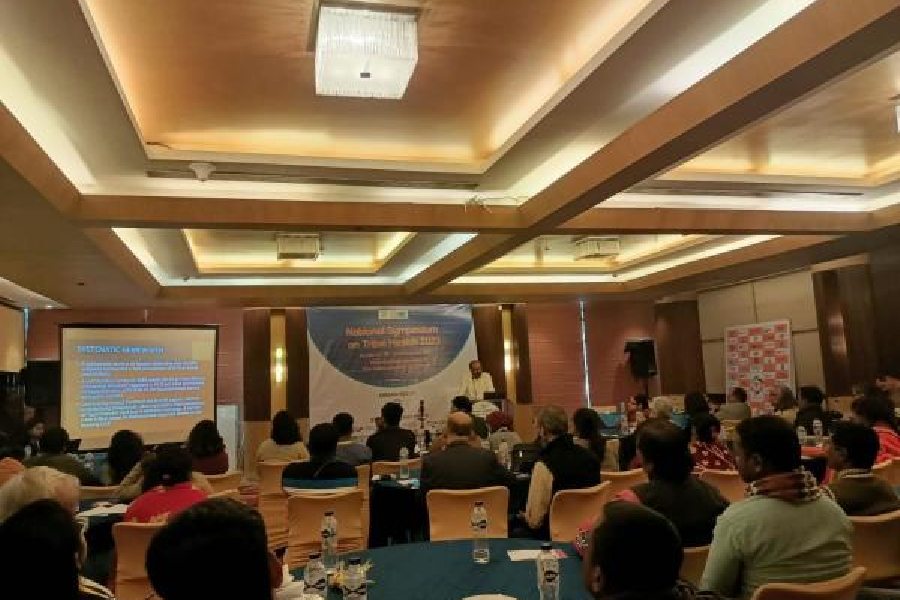Doctors and nurses working in tribal areas often do not understand the language that local people speak and vice versa.
This results in patients failing to make a doctor understand their health problems, a woman from Purulia's Manbazar said on the sidelines of a symposium on tribal health in the city on Friday.
Even the leaflets distributed with public health messages are not in the local language and a large section of the tribal residents do not understand what is written in them, said a public health specialist.
The language barrier means that doctors are treating patients based on a restricted understanding of their problems. It may affect the diagnosis and the outcome of treatment.
Sarala Soren, who lives in Kurkutiya village in Purulia's Puncha police station area, said the language barrier particularly affects the elderly, the ones who need to visit health centres more than others because of age-related ailments.
"Younger people know Bengali and can communicate with a doctor or nurse in Bengali. But the elderly people still speak only Santhali. They are not able to explain their problems accurately to the doctor or nurse as they don't understand the language," Sarala said.
Training someone who speaks both languages and appointing that person as a mediator can solve the problem.
"This compassion is required. This is not a difficult thing to do," said Nirmalya Mukherjee, a public health specialist and director of the Centre for Public Health Research, the organisers of Friday's symposium.
Mukherjee pointed out that in the predominantly tribal belt, health centres are located far away from the villages. For Sarala Soren, this was a lived experience.
"My parental house is in Bankura. The health centre is nearly 10km from the house," she said.
At the symposium, doctors also spoke about how non-communicable diseases have become a major threat to India's tribal population.
A doctor from Kerala also spoke about the common ailments affecting the tribal community in India. Jaideep Menon, a cardiologist, said a survey by the Indian Council of Medical Research (ICMR) found that non-communicable diseases are a major cause of death among tribal people.
"ICMR identified the causes of death of 5,292 individuals between 2015 and 2018. This was done across 12 states in India. It found that 66 per cent of the deaths were from non-communicable diseases (NCDs)," he said.
"This showed that contrary to the general perception that tribal people get ill because of infections, they are impacted by some lifestyle diseases, too."
A release on this survey by the Press Information Bureau of the Union government last year mentioned that "the study indicates that NCDs have replaced other causes of death (such as infectious diseases), even among the tribal population".
The website of the World Health Organisation lists heart disease, stroke, cancer, diabetes and chronic lung diseases among non-communicable diseases.
Menon said to make things worse, a section of the tribal people also suffers from malnutrition and another section from addiction to tobacco and alcohol.
